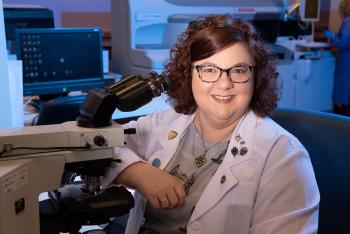Inspira Health is featured in a national colorectal cancer care report issued by Fight Colorectal...
Read More

Colorectal cancer is considered a “silent killer” because it can grow without any symptoms until it has progressed into advanced stages. The key is to start with routine screenings before experiencing symptoms. Starting screenings at age 45 can help to identify colorectal cancer early so there’s a better chance it can be cured.
“Over the past few decades, we’ve seen a reduction in colorectal cancer incidence and mortality in people who undergo screening,” said Peter J. Senatore, Jr., M.D., director of the Rectal Cancer Program at Inspira Health.
A colonoscopy is the most accurate type of screening for colorectal cancer. During the procedure, patients are put under anesthesia while a doctor checks for polyps and cancer inside the rectum and colon. If cancerous cells are found, they can be removed during the procedure. For people with average risk of colorectal cancer, a colonoscopy should be performed only every 10 years, whereas other types of screening require a higher frequency.
“Though colonoscopies are the gold standard screening for colorectal cancer, there are alternative screening tests that are effective, convenient and less invasive,” said Dr. Senatore. “While these tests are not as sensitive or accurate as a colonoscopy, we would rather patients get one of these tests than no cancer screening at all.”
A stool DNA test looks for altered DNA in your stool. For this test, you collect your entire bowel movement and send it to a lab where it is checked for cancer cells. A stool DNA test should be done every three years.
A guaiac-based fecal occult blood test (gFOBT) uses a chemical called guaic to detect blood in your stool from a small sample that you collect at home. Once collected, you return the test to your health care provider or send it to a lab. A gFOBT should be done every year.
A fecal immunochemical test (FIT) detects blood in your stool; like the gFOBT, you can use a small sample collected at home. Also like a gFOBT test, it should be done annually.
Another convenient type of test that doesn’t require stool samples at all is a visual screening called a computed tomography (CT) colonography, or a virtual colonoscopy. During this test, a technician takes X-rays and uses a computer to produce images of the entire colon, which is analyzed for abnormalities. This test should be performed every five years.
“It’s understandable that some patients may shy away from colonoscopies due to the nature of the procedure. But, it’s important to note that if any of these alternative tests detect abnormalities in your stool, your doctor may still recommend a colonoscopy.,” said Dr. Senatore.
It’s important to be open and honest with your doctor about your family history as well as any symptoms you are experiencing. Based on that information, your provider can provide guidance as to which screening option is best for you.
Patients who lack insurance may be eligible for a free colorectal cancer screening through the NJ Cancer Education and Early Detection (NJCEED) program. For more information about colorectal cancer, click here.
Inspira Health is a high reliability organization (HRO), which means safety is the top priority for patients and staff. To make an appointment, call 1-800-INSPIRA.

Inspira Health is featured in a national colorectal cancer care report issued by Fight Colorectal...
Read More
For 81-year-old artist Bonnie Flanagan, an overall assessment of her health, which included a self...
Read More
Uncover the hidden connections between your family's past and your future well-being as we delve...
Read More
The material set forth in this site in no way seeks to diagnose or treat illness or to serve as a substitute for professional medical care. Please speak with your health care provider if you have a health concern or if you are considering adopting any exercise program or dietary guidelines. For permission to reprint any portion of this website or to be removed from a notification list, please contact us at (856) 537-6772